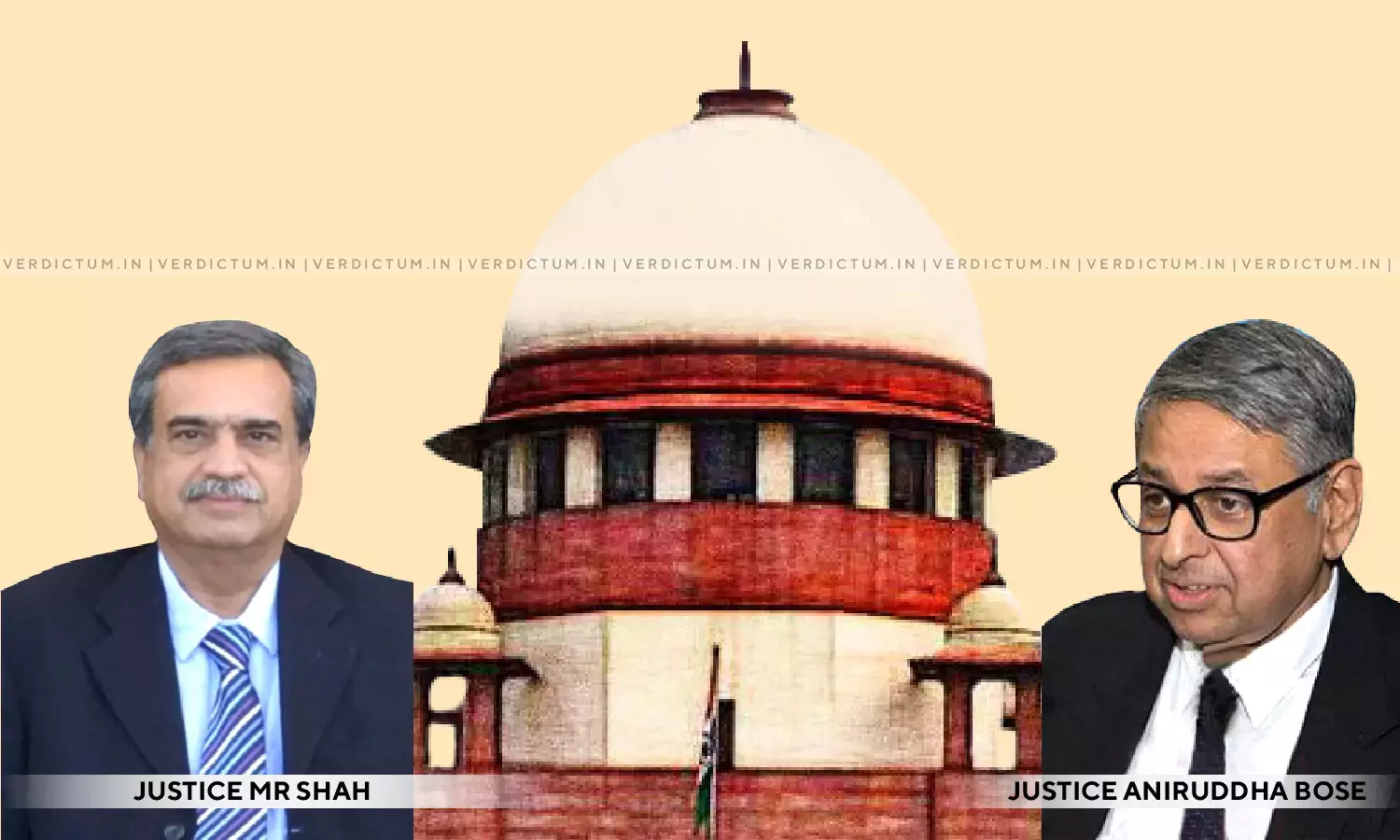Divorced Daughter Not On Par With Unmarried &Widowed Daughter- Supreme Court Summarizes Law On Compassionate Appointment

A two-judge Bench of Justice M.R. Shah and Justice Aniruddha Bose observed that a divorced daughter would not fall into the same class as that of an unmarried or widowed daughter and hence, would not be eligible for appointment on the basis of compassion under the Karnataka Civil Services (Appointment on Compassionate Grounds) Rules, 1996.
The Court, while setting aside the impugned Judgment of the Karnataka High Court, observed, "The norms prevailing on the date of consideration of the application should be the basis of consideration of claim for compassionate appointment."
In the case at hand, the Respondent's mother was employed with the Government of Karnataka as Second Division Assistant at Mandya District Treasury. At the time of her death, the Respondent was married. However, following her mother's death, the Respondent initiated proceedings for divorce by mutual consent and divorce was obtained. The Respondent, after obtaining the divorce, filed an application for compassionate appointment, which was promptly rejected as there was no provision provided under Rule 3(2)(ii) of Karnataka Civil Services (Appointment on Compassionate Grounds) Rules 1996 for appointing divorced daughters.
Aggrieved, the Respondent approached the Karnataka State Administrative Tribunal, where the application was dismissed. The Respondent then filed a writ petition in the Karnataka High Court, which passed a Judgment in her favor.
The Karnataka High Court, in its Judgment, interpreted Rule 3 and noted that a divorced daughter would fall in the same class as an unmarried or widowed daughter and therefore, a divorced daughter has to be considered on par with 'unmarried' or 'widowed daughter'. The present appeal was accordingly filed in the Supreme Court by the Karnataka government.
The Supreme Court placed reliance on the case of N.C. Santhosh vs. State of Karnataka and Ors, and noted, "the appointment on compassionate ground only be as per the scheme and the policy."
The Court summarized the observations made in earlier judgments on the grant of compassionate appointment and noted the following:
- That the compassionate appointment is an exception to the general rule;
- That no aspirant has a right to compassionate appointment;
- The appointment to any public post in the service of the State has to be made on the basis of the principle in accordance with Articles 14 and 16 of the Constitution of India;
- Appointment on compassionate ground can be made only on fulfilling the norms laid down by the State's policy and/or satisfaction of the eligibility criteria as per the policy;
- The norms prevailing on the date of the consideration of the application should be the basis for consideration of claim for compassionate appointment.
While referring to Rules 2 and 3, the Court observed, "From the aforesaid rules it can be seen that only 'unmarried daughter' and 'widowed daughter' who were dependent upon the deceased female Government servant at the time of her death and living with her can be said to be 'dependent' of a deceased Government servant and that 'an unmarried daughter' and 'widowed daughter' only can be said to be eligible for appointment on compassionate ground in the case of death of the female Government servant".
The Court further asserted, "Rule 2 and Rule 3 reproduced hereinabove do not include 'divorced daughter' as eligible for appointment on compassionate ground and even as 'dependent'. As observed hereinabove and even as held by this Court in the case of N.C. Santhosh (Supra), the norms prevailing on the date of consideration of the application should be the basis of consideration of claim for compassionate appointment. The word 'divorced daughter' has been added subsequently by Amendment, 2021. Therefore, at the relevant time when the deceased employee died and when the original writ petitioner – respondent herein made an application for appointment on compassionate ground the 'divorced daughter' were not eligible for appointment on compassionate ground and the 'divorced daughter' was not within the definition of 'dependent.'"
The Court also noted that the Respondent was married at the time of her mother's death and that the divorce proceedings had only been initiated in order to get the appointment on the grounds of compassion. Hence, when the Respondent was married, she would not have been considered as a dependent of the deceased at the time of her death and could not have been granted the compassionate appointment. In this regard, the Court noted, "Therefore, even if it is assumed that the 'divorced daughter' may fall in the same class of 'unmarried daughter' and 'widowed daughter' in that case also the date on which the deceased employee died she – respondent herein was not the 'divorced daughter' as she obtained the divorce by mutual consent subsequent to the death of the deceased employee. Therefore, also the respondent shall not be eligible for the appointment on compassionate ground on the death of her mother and deceased employee."
Accordingly, the Supreme Court set aside the impugned Judgment of the Karnataka High Court and allowed the Appeal.

